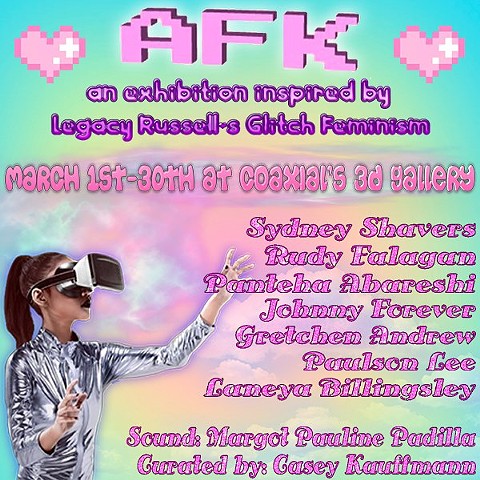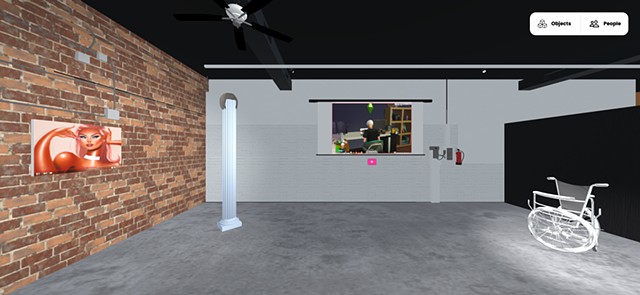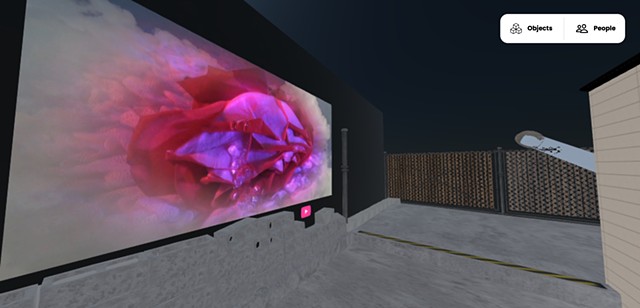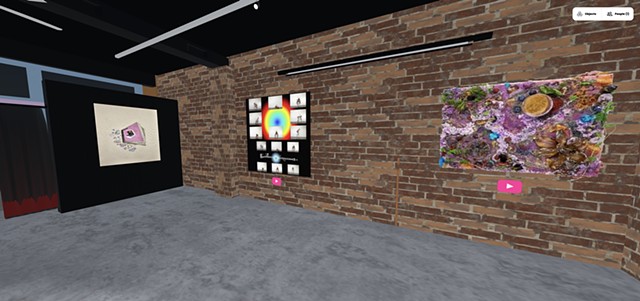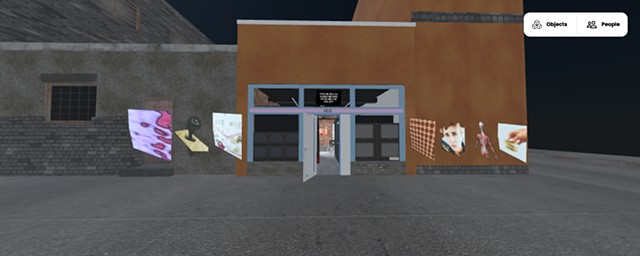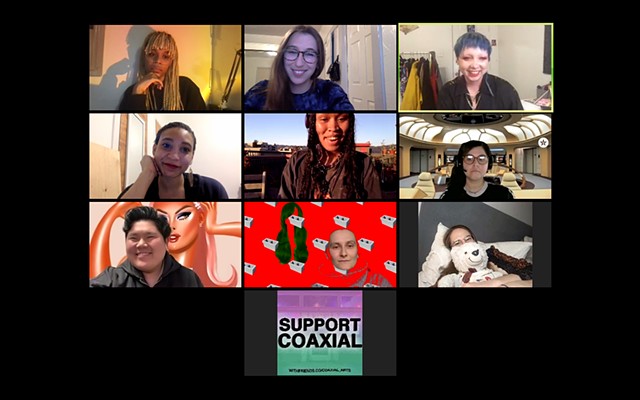AFK, Coaxial
AFK was a show I curated for Coaxial Galleries 6th anniversary in their 3D gallery in 2021
Johnny Forever Nawracaj, Gretchen Andrew, Rudy Falagan, Margot Padilla, Panteha Abareshi. Sydney Shavers, Paulson Lee
AFK stands for “Away From Keyboard.” In Glitch Feminism Legacy Russell advocates for the use of the term instead of IRL meaning “In Real Life” because today there is no separation between real and digital life. Our online life is as real and impactful as any other aspect of our lived experience, when we are not inhabiting our digital self it’s not gone just simply away. This exhibition is a celebration of the marginalized other, the work in it is a form of advocacy that captures the indistinguishable line between online and AFK self-representation. Using digital 3D sculptures, painting, video, collage, and various techniques of appropriation facilitated by online engagement the artists of AFK transform a variety of subjects related to physical and digital embodiment. AFK addresses youtube makeup tutorials, the relationship between the body and architectural landscapes, avatars, gaming, overexposure and popular culture, identity as fetish object, subversive SEO, the nuanced experience of the disabled body, and the self-surveillance promoted in our increasingly digital existence in Covid and beyond.
AFK is inspired by Legacy Russell’s phenomenal manifesto Glitch Feminism. She explains, “The oblique romance of Internet-as-utopia, against this backdrop reality, should not be dismissed as naive. Imbuing digital material with fantasy today is not a retro act of mythologizing; it continues as a survival mechanism.”[1] Much of the response to the architectures of the internet from those who have created it (middle-aged white men in Silicon Valley e.g. The Social Dilemma) and much of the art world itself are situated in an alarmist perspective. Data mining and practices of corporate surveillance present a real and ever-present threat built into the structure of the internet and digital practice. Yet these doomsday interpretations miss the way that many artists continue to use the internet as a space of utopic exploration of gender, identity, and the reclamation of under-represented experiences. Glitch Feminism offers a contemporary optimistic validation of practices that subvert the corporate structures of the internet to build a better, more inclusive world. In Glitch Feminism Russell defines glitch as an assertion of self-representation, a form of resistance in a world composed of ones and zeros.
We are asked to sacrifice the fluidity and complexity of our identities online in exchange for the supposed convenience offered by the predictive analysis of the algorithmic structures which we are subjected to within online and digital platforms. When we inhabit a digital body it is often simplified into binary structures, yet the work of the artists in AFK resists the ever-present compartmentalization found in our daily online activities. “A body that pushes back at the application of pronouns, or remains indecipherable within binary assignment, is a body that refuses to perform the score. This nonperformance is a glitch. This glitch is a form of refusal. Within glitch feminism, glitch is celebrated as a vehicle of refusal, a strategy of nonperformance.”[2] The work of the AFK artists signifies the potential for this form of online embodiment to result in measurable human progress promoting inclusivity and experimentation.
